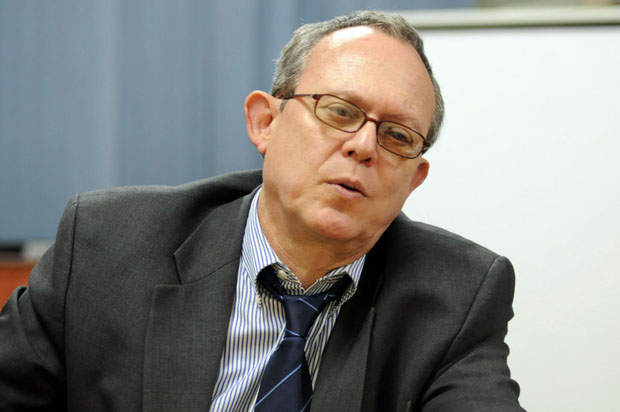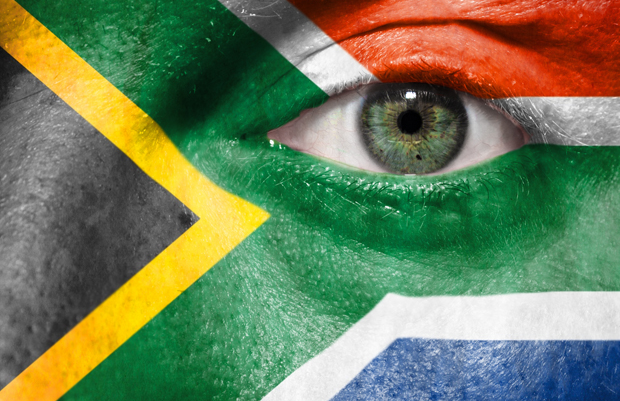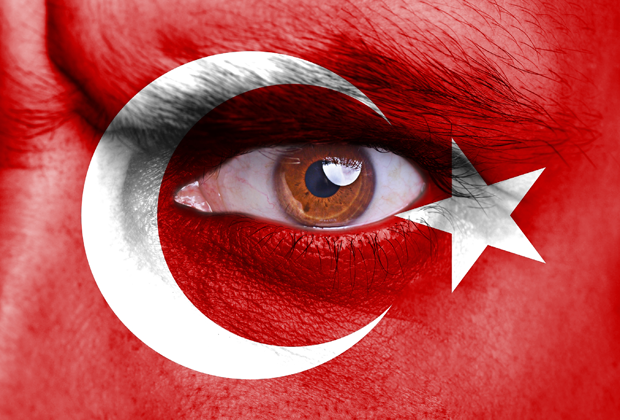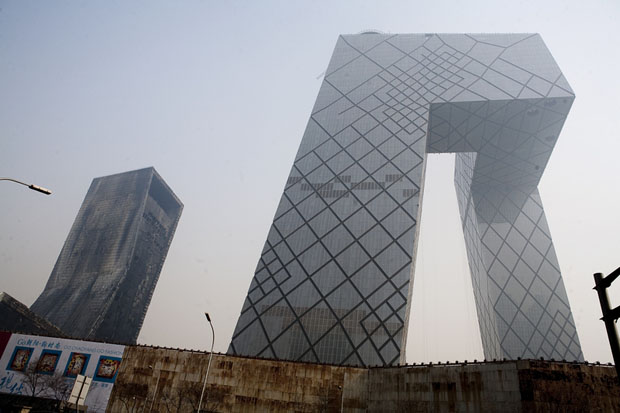25 Feb 2014 | Digital Freedom, News and features, United Nations

(Image: Mahmoud Illean/Demotix)
There should be a special United Nations mandate for protecting the right to privacy, says the Frank La Rue, the UN Special Rapporteur on the Promotion and Protection of the Right to Freedom of Opinion and Expression. “I believe that privacy is such a clear and distinct right…that it would merit to have a rapporteur on its own.”
While he pointed out there is some opposition to creating new mandates on economic grounds, he said: “In general If you would ask me, I would say yes, this right deserves a [UN] mandate.” He also called for a coordinated effort from the UN human rights system to deal with the issue of privacy.
The comments came during an expert seminar in Geneva Monday on “The Right to Privacy in the Digital Age” in the aftermath of the mass surveillance revelations.
La Rue said that the right to privacy has not been given enough attention in the past, calling it equal, interrelated and interdependent to other human rights. In particular, he spoke of its connection to freedom of expression and how having or not having privacy can affect freedom of expression.
“Privacy and freedom of expression are not only linked, but are also facilitators of citizen participation, the right to free press, exercise of free opinion, and the possibility of gathering individuals, exercising the right to free association and to be able to criticise public policies.”
He also warned against trying to protect national security at the expense of democracy and human rights, saying: “If we pitch one against the other…I think we’ll end up losing both.”
This echoes the sentiments of his report released in June 2013, which concluded that: “States cannot ensure that individuals are able to freely seek and receive information or express themselves without respecting, protecting and promoting their right to privacy.”
This article was posted on 25 February 2014 at indexoncensorship.org
25 Feb 2014 | News and features, Politics and Society, South Africa

Photo illustration: Shutterstock
In what seems like a purge, South Africa’s Independent News and Media (INM) group is shedding many of its foremost journalists and commentators. Simultaneously, the company’s newspapers have stepped up coverage of the personal ruminations of its new chairperson, Dr Iqbal Survé.
The current turmoil started with the summary dismissal of respected Cape Times editor Alide Dasnois on 6 Dec last year. It coincided with the publication on that date of a lead article on page one on corruption in which Survé’s company Sekunjalo Holdings was implicated. The Cape Times is part of the INM stable which includes 18 daily and weekend titles.
Dasnois was at first threatened with a lawsuit in a letter from Survé’s lawyers. Dismissal followed, for which the reasons changed over time. One “reason” is the use of a wraparound around the 6 Dec edition to commemorate South African icon Nelson Mandela’s death. The conflict escalated to the op-ed and letters pages. The paper’s op-ed editor, Tony Weaver, on Dec 13 justified the wraparound as forced by limited time. It still contained the latest news and reflections.
Aneez Salie, appointed as Cape Times deputy editor after Dasnois was fired, opposed Weaver’s assertions, saying “we could’ve and should’ve changed page one”. He ended with a declaration of “no surrender”.
Salie’s intervention was met with a counter-position from assistant editor Janet Heard, arguing that the debate about the wraparound is a distraction from the real reason for Dasnois’ dismissal, which is the page one article on Sekunjalo’s implication in corruption.
In response to Heard’s article, newly appointed group executive editor Karima Brown and group op-ed editor Vukani Mde threw down the gauntlet, sparking the current spate of dismissals and departures from the company. By that time, long-standing group executive editor Chris Whitfield had decided to take early retirement.
Mde and Brown’s article cast the questioning of Dasnois’s dismissal as being part of “skewed patterns of power (economic, political, and discursive) in South Africa 20 years into democracy. A small but very privileged and racially definable minority still controls the tools of public discourse… This group has resisted and fought against transformation of the media, be it in ownership, management, or in newsrooms. They’ve grown adept at paying lip service to the goals of transformation and media diversity, but in truth remain against them, as their joint and individual actions demonstrate… Survé… wears his ANC [ruling party] heart on his sleeve… Anyone who cannot bring themselves to accept [INM’s] new owner or its direction under him, must as a matter of principle leave”.
An unedited version of the article apparently appeared in the Cape Argus with claims that prompted both Weaver and Heard to lodge grievances with the company’s human resources department.
The first head to roll was that of labour specialist Terry Bell. His column of 18 years’ standing was “suspended”. Bell is respected as a leftist analyst of trade union matters. His column was canned a few days after he penned the following:
Transformation of the media in South Africa is essential… [It] is not merely a matter of ownership, but of control of subject matter and the manner in which it is reported. This, obviously, has a bearing on ownership, because those who own often try — and all too often succeed — in manipulating media output… [T]ransformation has to do with training and professionalism and little, if anything, to do with the pigmentation of the practitioners, let alone the owners.”
In response to a call from the Congress of South African Trade Unions (Cosatu) to reinstate Bell, group editor Brown responded that the newspapers will “not take instruction from Cosatu”. Cosatu is the largest trade union federation in the country and is aligned to the ruling African National Congress. Weaver and Bell have since been the target of further disinformation, rebutted by Weaver.
Shortly afterwards, Business Report Cape bureau chief Donwald Pressly was suspended for putting his name forward for the parliamentary lists of the Democratic Alliance, the official opposition party. Next followed the resignation of Business Report editor-at-large Ann Crotty, an award-winning writer on issues such as executive pay, citing the following reason:
The decision was the result of a troubling sequence of events. While I acknowledge the rights of owners, I think the balance between the rights of the owners, the rights of readers and the rights of journalists has slipped out of kilter at the Independent Group. If you look at what [has] been happening at Independent, there is a sense that we – the journalists – might be too concerned with the views of the Chairman. My decision to leave is largely motivated by the fact that we shouldn’t be writing for the Chairman and the owners. We should be writing for our current readers as well as readers we hope to attract.”
Indeed, a marked surge in articles on Survé can be noted as the newspapers shed more and more senior journalists. An interview published on 23 Jan featured his “Davos agenda” during his attendance of the World Economic Forum. Headlined “building a media legacy”, another Q&A with Survé conducted by Cape Times editor Gasant Abarder was published on 31 Jan. This was followed by another interview on 13 Feb, headlined “The man who wants to change the world”. The latter contained insights such as: “Every day he affords himself a few minutes of meditation – early in the morning and late in the evening. He then asks himself the following: ‘What good will I do today?’ and then in the evening: ‘What could I have done differently?’”
In another article, published 17 Feb, Survé ruminated on “what I got out of Davos”.
Some would argue that the World Economic Forum (WEF) annual meeting in Davos is no more than a cosy club for the elite… But Davos is so much more than that. Two weeks after my return from this annual event, I find myself returning constantly to the conversations, the engagements and the sharing of thinking. I do this as I return to the day-to-day business of my life and find that I am richer for that week…”
Both Bell and Crotty are known as stringent critics of the annual Davos get-together of capitalists. Meanwhile, the use of the Independent papers to attack Sekunjalo’s competitors has continued.
The exodus continues with the resignation of Moshoeshoe Monare as editor of the Sunday Independent. Shortly after Dasnois’ sacking, he wrote a column asserting:
Editorial independence to me means that the decision regarding the content of The Sunday Independent – whether wrong or right – lies with me. It means my bosses trust that I will exercise my duties without any interference. It means Dr Survé and his companies – including Independent Newspapers – will also be subjected to our editorial scrutiny.”
This article was published on 25 February 2014 at indexoncensorship.org
25 Feb 2014 | News and features, Politics and Society, Turkey

Photo illustration: Shutterstock
Turkey stands at 154 out of 180 places on Reporters Without Borders 2014 Press Freedom Index.
As of December 2013, a total of 211 journalists were behind bars somewhere in the world. Almost one fifth of these alone were jailed in Turkey, making it the country with the most number of journalists imprisoned globally, and placing it behind countries with such as Iran and China.
In the past 18 months many renowned journalists have been removed from their positions due to direct and increasing government pressure on media organisations in an attempt to control the level of critical coverage.
The height of government pressure came during the June 2013 Gezi Park protests, in which 153 journalists were injured and 39 detained for just doing their job.
The majority of mainstream national TV channels failed to cover the initial protests for fear of backlash from the government. The recent approval of a new “internet law”, a law brought in on the grounds of protecting the privacy of private information, is seen by many as the latest step in a conscious effort by the government to control freedom of expression in Turkey.
In a 2007 article, Concentration of ownership, the fall of unions and government legislation in Turkey (£) journalism professor Christen Christensen argued that the enormous power of Turkish media owners leaves journalists powerless.
Journalists’ Trade unions are seen as “useless” in, leaving reporters vulnerable to economic and political pressure. In the same article, Christensen more importantly stated that while there has been an increase in penalties for crimes committed through print or mass media, simultaneously there is a lack of provisions securing the rights of journalists to report and discuss issues. The difficulty of carrying out the profession in Turkey is enhanced by the restrictions on access and disclosure of information and the vague language used to define defamation and insult.
Today, a high number of journalists have been charged under Turkey’s anti-terrorism legislation The law’s vague wording allows a broad interpretation what constitutes support for a terrorist organisation. Many high profile journalists, such as Nedim Şener, Ahmet Şık and Cumhuriyet’s Mustafa Balbay, were charged with involvement in the “Ergenekon plot” – an alleged shadowy conspiracy that authorities claim aimed to overthrow the government. These charges have been laced with claims of falsified evidence, discrepancies in computer records and doctoring of evidence.
The grounds for arrests have similarly been a cause for confusion, Şık, for example, was arrested for allegedly supporting Ergenekon when his unpublished book was allegedly found on internet news portal OdaTV computers, while evidence against Mustafa Balbay comprised of documents seized from his home and office, which he states were notes and recorded conversations with government and military officials conducted for the purpose of his journalism.
Again, the same anti-terrorist legislation has resulted in the arrest of several Kurdish journalists for what authorities say is dissemination of propaganda aligned with the banned Kurdish Worker’s Party, or PKK, and related organisations.
As political tensions in the country increase, vague legal frameworks continue to be the enemy of not only journalists, but also other groups, most significantly students – all of whom are being taught to fear the implications of expressing their thoughts. Despite there being talks on revising the anti-terrorism legislation to narrow its scope, it is clear that the major link between the above arrests is the presence of a voice of opposition and the lack of a strong legal framework to ensure a sound judicial process.
Today, journalists such as Nedim Şener, Ahmet Şık and Mustafa Balbay, still face jail time if sentenced and it is only with a revision of the law in question and the wider legal framework relating to journalists that the profession will be able to develop and fulfil its democratic role.
This article was published on 25 February 2014 at indexoncensorship.org
24 Feb 2014 | Asia and Pacific, China, News and features

China’s state broadcaster CCTV fired a journalist for criticising its practise of airing live criminal “confessions” (Image: Matthew Niederhauser/Demotix)
In November 2013, Wang Qinglei, a TV producer at the state-broadcaster CCTV, left his office for the last time. “Long-time co-workers lamented with me, ‘Over all these years, there have been editors, reporters, producers, and directors who have been suspended because of stories, but you are the first producer who has been fired for speaking your true feelings! What is wrong with CCTV these days?'” he later wrote.
“In the space of a year, we get upwards of a thousand propaganda orders,” Wang had controversially vented on an internet forum prior to his dismissal. “We should ask ourselves: How many of these orders were issued in the national interest, and how many were issued to serve the political and economic interests of some individual, group or leader?”
His comments sparked alarm amongst the authorities. They had just passed laws forbidding citizens from exploiting the media to spread unfounded rumours and libellous claims, a strategy which most suspected was more covert censorship than genuine concern.
The open letter that he posted online, which CCTV would subsequently fire him over, focused on a new practice of airing live criminal “confessions.” State-owned CCTV had been broadcasting dramatised admissions by petty criminals for years, in an attempt to win new viewers, but in recent months, a string of high-profile political suspects had also been made to confess to crimes on air. The suspects are often filmed handcuffed and wearing jump suits. The footage is designed to be humiliating. The practice is ongoing.
Chinese-American Charles Xue, a social media celebrity and successful venture capitalist, had been amongst the first victims of the tactic, just two months previously. He “confessed” to having been “in a negative mood” while tweeting criticisms of the government, admitting that his thoughts were “a neglect of the social mainstream.” Separately, the authorities had arrested him for consorting with prostitutes, charges which some say are fabricated.
As Wang put it, when decrying the TV confessions in his open letter to CCTV executives: “We abused the public institution of media to wantonly bombard an individual indiscretion. Journalistic integrity and professionalism were nowhere to be found.”
The ironies of the circumstances surrounding Xue’s confession were either unintended or highly cynical. While the Chinese authorities are still having trouble taming the internet, the government remains in control of print and TV media.
Footage of Xue’s confession, for example, was widely discussed by Chinese TV and print outlets, whose freedom of expression is heavily limited by state involvement. Meanwhile, Xue’s online media presence was rapidly disappearing. Mentions of previous campaigns on microblogging site Weibo were removed. Wang’s open letter to CCTV, the one which had got him sacked, was also removed. Directives issued from the Ministry of Information detailed how links to any of the content would result in arrests.
Wang, and other critics of the policy, argued the on-air confessions, forced on high-profile enemies of the state such as Xue, were an unfair skip round a proper judicial process. Human rights lawyers and even some Communist Party officials have condemned the practice. The confessions sit alongside new legislation that forbids what the government call online “rumour mongering,” and allows anyone who retweets an “unfounded rumour” to be arrested. Thousands have now been arrested, including several high profile “social media celebrities.”
State newspapers say the new laws to control “rumour mongering” are necessary: “The Internet has grown into an easily accessible platform for the Chinese public, an increase in crimes such as defamation and blackmail has occurred online over the past few years.”
Indeed, authorities were quick to link Charles Xue’s arrest with those of Qin Zhihui and Yang Xiuyu – two so-called “black PR” professionals. Xue had allegedly invested in their controversial public relations outfit.
“Black PR” is a rapidly growing sector in China – which polishes the online reputation of celebrity and corporate clients – while spreading malicious rumours about their enemies. Rumours started by Qin and Yang were often fabricated, sometimes falsely accusing CEOs of infidelity, or involvements with prostitutes and causing a significant scandal when they effectively destroyed the Chinese Red Cross’ reputation, over made up allegations of sexual impropriety amongst senior officials at the organisation. The pair employed a 15,000 strong portfolio of online personalities to help spread their rumours – known as a “water army.”
Yet industrial smearing from the pair had gone unchecked for years — the government simply wasn’t interested in the malicious rumours Qin and Yang routinely disseminated. In fact, it was only when Qin and Yang’ decided to attack a senior Communist Party official, Lei Feng, that new “rumour mongering” legislation was suddenly used to arrest the pair. They now face long jail sentences.
Charles Xue, who was accused of backing the pair financially when he was arrested, has long been of interest to the party apparatus. As a young man, his father was imprisoned by Mao Zedong, and Xue was forcibly exiled to the countryside, put to work in attempt to reduce the threat he, and other academics, supposedly posed to communism. His outlook since the effective imprisonment has been increasingly international – as a young man he quickly learned English, did some translation work of American texts for publication in China, and travelled to Stanford to study.
In recent years, Xue has amassed not only vast wealth through his various business enterprises, but also several million followers on social media. He leverages this considerable audience for awareness campaigns around issues such as clean water, kidnapping and human rights. He also speaks passionately about the potential for Weibo to affect change.
The irony of the state abusing their control of TV and print to control those who “abuse” the media online has also been noted by local Chinese observers. Government bodies “spreading falsehoods” have come in for focussed criticism. Activists simply ask “why are men like Charles Xue being arrested, when the authorities regularly spread false rumours themselves?”
For example, an article about the Beijing police in a state-run newspaper, which reported on a supposed new crackdown on prostitution, was quickly identified as a fake. The article was in fact a repeat of an identical piece published several years earlier, which had simply been reprinted with a new date at the top.
Critics also called out newspaper Xinhua, when they mistakenly announced that Istanbul had been awarded the 2020 Olympic Games, instead of Japan. The authorities, who effectively operate Xinhua, were extremely embarrassed by the editorial hiccup. Yet no arrests at Xinhua have yet been made, over this Olympic-sized mistake.
International media has been suggesting Weibo is being”neutered” as a result of the new anti-rumours crackdown – with people too scared to use it. But newer analysis of online conversations since the legislation has been passed has revealed something strange. Record numbers of Chinese netizens are now politically active, in particular chatting about the relatively obscure political ideology “constitutionalism.” Constitutionalism is a reformist movement that advocates tying the Communist Party to a constitutional framework. In Weibo terms, the volume of conversations is enormous: there are currently twice as many microblogs referring to “constitutionalism” as were being made around the time of the Jade Rabbit moon landing. The Chinese foray into space held the previous record for most microblogs on a single topic, the analysis showed.
But on balance, the laws are chilling. The arrest net the “anti-rumours campaign” has thrown is big, with thousands already in custody. In politically troublesome Inner Mongolia, the state has made fifty arrests. And the firing of Wang Qinlei at CCTV will shake employees at state-owned media outlets, but also “social media celebrities” who are contemplating effecting social change online. The sacking starkly shows how the Communist Party stands behind CCTV as a broadcaster: endorsing public confessions to made-up crimes, as an agent of the state. Criticism of these public confessions will not be tolerated — instead it will be destroyed. And consider the “victim” of the confession, Charles Xue. Trumped up prostitution charges were probably difficult to explain to his wife. His kids won’t remember fondly, watching their dad on TV, confessing to being an enemy of the state. Nor the bullying that goes on in the school yard afterwards. The gossip and rumours behind his family’s back. “Saving face” is an all-important concept in China: public humiliation is the antithesis of that. Televised confessions, an unsettling and bizarre spectacle, are making even the most influential scared to speak out.
This article was posted on 21 February 2014 at indexoncensorship.org




